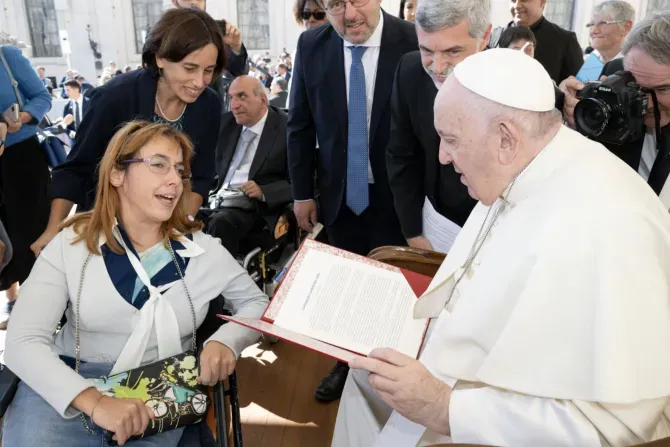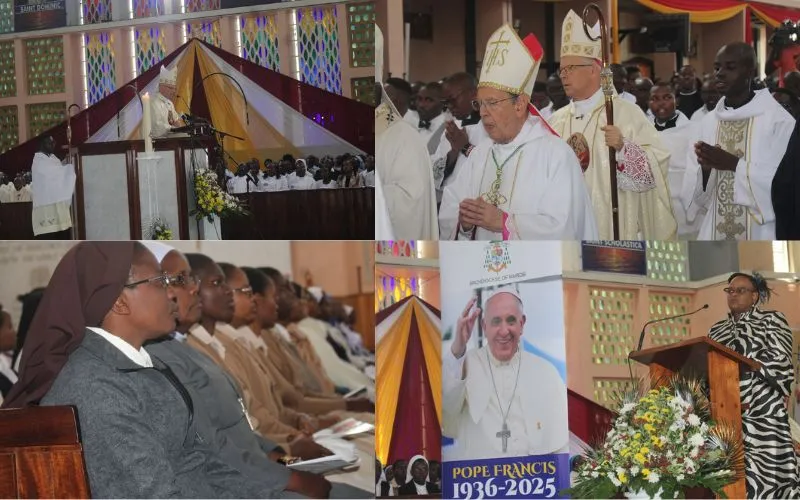The report from people with disabilities was hand-delivered to Pope Francis after his general audience in St. Peter’s Square on Sept. 21 by Giulia Cirillo, an Italian woman who uses a wheelchair.
Cirillo told CNA afterward that she thanked Pope Francis “because he gave all of us the opportunity to speak, that is, even us, persons who live firsthand with disabilities.”
Sister Marie Claire Rolland, a French religious sister with Down syndrome, also participated in the listening session and the drafting of the synthesis. After hugging Pope Francis — the third pope she has met during her life — Rolland blessed him, making a sign of the cross on his forehead.

The Vatican’s Dicastery for Laity, Family, and Life organized the virtual listening session in May and the preparation of the final report on what was shared.
Vittorio Scelzo, who oversees the dicastery’s area on the care of people with disabilities, told CNA the synthesis was delivered Sept. 20 to the committee tasked with preparing the synod’s first working document for the continental phase. The committee begins its work at a religious house near Frascati, Italy, on Sept. 21.
The laity, family, and life dicastery wanted the disabled to be “taken seriously,” Scelzo said. “The synod was perfect,” he noted, “the right moment, a kairos,” for hosting a listening session.
Father Glyn from Australia said his experience in the Church as a disabled man has been varied, but his experience as a priest with a disability is “hugely advantageous actually.”
He pointed to the problem of clericalism, explaining that “if you are a priest who knows that you are vulnerable, knows that you are weak, knows that you have the need of support of others, the temptation towards [clericalism] is not as strong because we know that we need each other.”
Cirillo, the woman who uses a wheelchair, said, “as a believer, I think each of us has a vocation that we need to discover; none of us is useless.”
“We can thus make a contribution for a more and more inclusive Church, also for people with disabilities,” she said.
“We all need help. Asking for help is not an embarrassment, it is our mission,” she continued. “Even when the condition of disability brings us extra difficulties, we have to remember that Jesus wants us to be joyful, and when we are sick, he is also sick for us. However our mission is to be joyful.”









